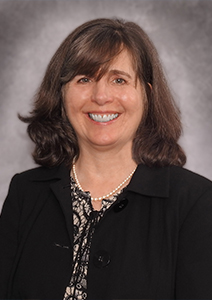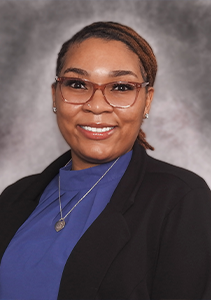On February 15, Cook County Health held its first Behavioral Health Summit, bringing together health care and social service providers, mental health advocates, community leaders and elected officials to discuss how to improve access and care in Cook County.
The all-day summit, held at the UIC Dorin Forum, was led by the Cook County Health Office of Behavioral Health, which was established last year to support the transformation of the behavioral health ecosystem across Cook County through community partnerships, systems alignment, innovation, and equity-driven funding.
More than 700 people from 300 organizations attended the event, which included addresses from Cook County Board President Toni Preckwinkle, Chicago Mayor Brandon Johnson and Michael Cabonargi, Regional Director, US Department of Health and Human Services, as well as video-taped messages from Illinois Governor JB Pritzker and Cook County Commissioner Dennis Deer, who also serves as Vice Chair of the Cook County Health Board of Directors and Chair of the Cook County Health & Hospitals Committee.
“Barriers to treatment and recovery services exist for too many individuals. We need to ensure that all residents of Cook County have access to the care they need, when they need it, and in the manner they need it,” said President Toni Preckwinkle, Cook County Board of Commissioners. “While it won’t be easy, our collaboration and success- starting here today- will have a significant impact on Cook County, on our health care system, our criminal justice system, our economy, and the wellbeing of the residents whom we serve.”
“We have a behavioral health crisis in this city. Lack of access to behavioral health care is a public health and a public safety issue that affects all Chicagoans,” said Mayor Brandon Johnson. “Whether it’s through providing treatment, instead of trauma, reopening mental health clinics, housing the unhoused, investing in violence prevention, or providing care for those struggling with substance use disorder, we all need to work together to find durable solutions that address this crisis.”
“In Cook County and throughout America, we’ve come to a powerful realization: Mental Health is health. Full stop. And our goal should be that every individual, regardless of their walk of life, has access to mental health support,” said Michael Cabonargi, Regional Director for the U.S. Department of Health and Human Services. “I’m proud to be part of President Biden’s Administration that is extending vital tools and resources to provide the support and care that those battling mental health disorders so rightfully deserve. This approach is focused on meeting people where they are, and helping to ensure that there is no wrong door to behavioral health care.”
According to the National Alliance on Mental Illness, 1 in 5 U.S. adults experienced mental illness in 2021 while 1 in 6 U.S. youth ages 6-17 experience a disorder. Despite the prevalence of mental health conditions, less than half of adult individuals (47.2 percent) received treatment, including 39.4 percent of African Americans and 36.1 percent of Hispanics.
“We all know the statistics, but these are not just data points. These numbers represent individuals who need care, including our family members, friends, and neighbors. The question today is, ‘what can we do collectively to move the needle?’” said Dr. Erik Mikaitis, Interim CEO, Cook County Health. “The overwhelming response to this event underscores the need and our collective desire to develop solutions to the ongoing behavioral health crisis. This is the first step in a much broader initiative to foster collaboration between providers, advocates, social services and local governments to affect real and lasting change. We are stronger together.”
In addition to the opening speakers, the event included topic-specific and geography-specific breakout groups throughout the day to discuss challenges and ideas for improving mental health care in Cook County. Perspectives gathered at the summit will be instrumental in developing a Cook County Behavioral Health Strategic Plan, a Behavioral Health Workforce Assessment, and for informing opportunities for upcoming community-based funding opportunities from Cook County Health’s Impact Fund.
“Thanks to support from President Preckwinkle and the Cook County Board of Commissioners, and funding from the American Rescue Plan Act, Cook County Health is preparing to issue an RFP for community-based behavioral health services and interventions to improve the health of Cook County residents. We expect to award more than $40M in grants this year with an open call being announced in the coming weeks,” said Dr. Tom Nutter, Chief Behavioral Health Officer, Cook County Health.
On February 15, Cook County Health held its first Behavioral Health Summit, bringing together health care and social service providers, mental health advocates, community leaders and elected officials to discuss how to improve access and care in Cook County.
The all-day summit, held at the UIC Dorin Forum, was led by the Cook County Health Office of Behavioral Health, which was established last year to support the transformation of the behavioral health ecosystem across Cook County through community partnerships, systems alignment, innovation, and equity-driven funding.
More than 700 people from 300 organizations attended the event, which included addresses from Cook County Board President Toni Preckwinkle, Chicago Mayor Brandon Johnson and Michael Cabonargi, Regional Director, US Department of Health and Human Services, as well as video-taped messages from Illinois Governor JB Pritzker and Cook County Commissioner Dennis Deer, who also serves as Vice Chair of the Cook County Health Board of Directors and Chair of the Cook County Health & Hospitals Committee.
“Barriers to treatment and recovery services exist for too many individuals. We need to ensure that all residents of Cook County have access to the care they need, when they need it, and in the manner they need it,” said President Toni Preckwinkle, Cook County Board of Commissioners. “While it won’t be easy, our collaboration and success- starting here today- will have a significant impact on Cook County, on our health care system, our criminal justice system, our economy, and the wellbeing of the residents whom we serve.”
“We have a behavioral health crisis in this city. Lack of access to behavioral health care is a public health and a public safety issue that affects all Chicagoans,” said Mayor Brandon Johnson. “Whether it’s through providing treatment, instead of trauma, reopening mental health clinics, housing the unhoused, investing in violence prevention, or providing care for those struggling with substance use disorder, we all need to work together to find durable solutions that address this crisis.”
“In Cook County and throughout America, we’ve come to a powerful realization: Mental Health is health. Full stop. And our goal should be that every individual, regardless of their walk of life, has access to mental health support,” said Michael Cabonargi, Regional Director for the U.S. Department of Health and Human Services. “I’m proud to be part of President Biden’s Administration that is extending vital tools and resources to provide the support and care that those battling mental health disorders so rightfully deserve. This approach is focused on meeting people where they are, and helping to ensure that there is no wrong door to behavioral health care.”
According to the National Alliance on Mental Illness, 1 in 5 U.S. adults experienced mental illness in 2021 while 1 in 6 U.S. youth ages 6-17 experience a disorder. Despite the prevalence of mental health conditions, less than half of adult individuals (47.2 percent) received treatment, including 39.4 percent of African Americans and 36.1 percent of Hispanics.
“We all know the statistics, but these are not just data points. These numbers represent individuals who need care, including our family members, friends, and neighbors. The question today is, ‘what can we do collectively to move the needle?’” said Dr. Erik Mikaitis, Interim CEO, Cook County Health. “The overwhelming response to this event underscores the need and our collective desire to develop solutions to the ongoing behavioral health crisis. This is the first step in a much broader initiative to foster collaboration between providers, advocates, social services and local governments to affect real and lasting change. We are stronger together.”
In addition to the opening speakers, the event included topic-specific and geography-specific breakout groups throughout the day to discuss challenges and ideas for improving mental health care in Cook County. Perspectives gathered at the summit will be instrumental in developing a Cook County Behavioral Health Strategic Plan, a Behavioral Health Workforce Assessment, and for informing opportunities for upcoming community-based funding opportunities from Cook County Health’s Impact Fund.
“Thanks to support from President Preckwinkle and the Cook County Board of Commissioners, and funding from the American Rescue Plan Act, Cook County Health is preparing to issue an RFP for community-based behavioral health services and interventions to improve the health of Cook County residents. We expect to award more than $40M in grants this year with an open call being announced in the coming weeks,” said Dr. Tom Nutter, Chief Behavioral Health Officer, Cook County Health.
For more information about the Cook County Behavioral Health Summit, visit https://cookcountyhealth.org/cook-county-behavioral-health-summit/.


